Ministry of Industry and Trade synchronizes solutions to promote exports in 2025
The latest US tax policy will directly impact many countries, including Vietnam.
According to experts, in the face of fluctuations in global trade, businesses need to be proactive in adapting, especially exploiting new markets is also the optimal solution to minimize damage when trade tensions are becoming increasingly unpredictable.
Proactive production according to market signals
On the afternoon of April 2 local time, US President Donald Trump signed an executive order imposing reciprocal tariffs on dozens of economies, effective from April 9, of which Vietnam will be subject to a tax rate of up to 46%.
With this policy, according to Mr. Do Ngoc Hung, Head of the Vietnam Trade Office in the United States (Ministry of Industry and Trade), the US tax rate on Vietnam is significantly high (second only to Cambodia at 49%). The tax rate on Vietnam is even higher than China at 34%, EU at 20%, India at 26%, Japan at 24%. This tax rate, if applied, will be very disadvantageous for Vietnam's export goods when exported to the US market.
Some goods that will not be subject to reciprocal duties include: items subject to duties under 50 USC 1702(b); steel/aluminum and auto/auto parts items already subject to duties under Section 232. Additionally, copper, pharmaceuticals, semiconductors, and lumber; all items that may be subject to duties under Section 232 in the future; gold bullion; energy; and certain minerals not available in the United States.
Mr. Hung informed that, according to the understanding of some experts after studying President Donald Trump's Executive Order, it is currently unclear whether after the United States applies a common tariff of 10% to all countries on April 5, 2025, it will be combined with the corresponding tax with each partner (60 countries) on April 9, 2025.
In addition, the Executive Order reflects the current administration’s consistent view that the application of US tariff measures is aimed at addressing the long-standing trade deficit that is no longer just an economic issue but has become a national emergency that threatens the security and well-being of the American people. These tariffs will remain in effect until President Trump determines that the threat posed by the trade deficit and non-reciprocal treatment has been fundamentally resolved or reduced.
Mr. Hung said the Decree also stated that the US Customs and Border Protection (CBP) will provide guidance on how to tax goods originating from the US (accordingly, based on the US content in imported goods of at least 20%).
"Immediately after the US issued the tax table, the Trade Office contacted the USTR (United States Trade Representative) representative to learn more about the calculation basis and some other related information," said Mr. Hung.
Regarding the wood industry, in 2024, Vietnam will export over 9 billion USD worth of wood products to the US, mainly refined goods and furniture, with tax rates of 0% or very low. In contrast, Vietnam will import 332 million USD from the US, of which 301 million USD is raw logs and sawn timber with a tax rate of 0%, and the remaining 20 million USD is wood products with a tax rate of 15-25%.
Mr. Ngo Sy Hoai, Vice President and General Secretary of the Vietnam Timber and Forest Products Association, said that the Government's issuance of Decree 73/CP on March 31 on reducing import taxes on a number of goods, including reducing import taxes on all wood products from the US to 0%, is expected to contribute to the sustainable development of Vietnam-US trade relations and help the wood industry avoid being taxed.
"The proactive solution for businesses is to pay attention to market diversification, to guard against market uncertainties in a context where there is a trend towards trade liberalization, protectionism, and increased technical barriers and trade barriers in major markets, while at the same time responding by strengthening trade defense capacity," said Mr. Hoai.
Textile and garment enterprises meet market standards to boost exports
For the textile and garment industry, the US market accounts for a relatively large proportion, with many enterprises exporting to the US accounting for up to 40%. According to Mr. Nguyen Xuan Duong, Chairman of the Board of Directors of Hung Yen Garment Company, the imposition of tariffs on textiles as announced by the US President is also an alarming issue for many enterprises, directly affecting business results in the coming time.
Mr. Duong said that although the US is not a country that directly produces garment products and mainly imports them, Vietnamese businesses are ready to face the problem of increased taxes from this market.
“The company is aiming to gradually shift to FOB production (proactively controlling raw materials and completing products) so that customers can share taxes, while promoting the exploitation of potential markets such as Russia, Australia, New Zealand, as well as taking advantage of the tax reduction roadmap through the FTA signed with Europe to increase exports…,” Mr. Duong informed.
The product structure is complementary to each other.
After 30 years of establishing diplomatic relations (July 1995), 10 years of establishing comprehensive partnership and 2 years of upgrading relations to comprehensive strategic partnership, Vietnam-US relations have been developing increasingly positively and steadily in all fields, in which the economic-trade-investment pillar plays a key role as a driving force to promote the overall bilateral relationship.
According to statistics from the Ministry of Industry and Trade, bilateral trade turnover in 2024 reached nearly 150 billion USD, an increase of 20.5% over the same period last year. The United States has become the second largest trading partner and one of the most important export markets of Vietnam and is gradually becoming a source of machinery, equipment, science and technology, and energy products for Vietnam.
In terms of investment, the United States continues to be one of Vietnam's leading investment partners, with most major US corporations having a presence and effectively investing in Vietnam, while an increasing number of Vietnamese enterprises have invested in the US market.
Notably, on March 13, within the framework of a working trip to the United States to work with the Office of the United States Trade Representative (USTR), the Department of Energy (DOE) and relevant agencies, Special Envoy of the Prime Minister, Minister of Industry and Trade Nguyen Hong Dien attended and witnessed the signing ceremony and announcement of cooperation agreements, contracts for the purchase of machinery, equipment, raw materials, services and goods between Vietnamese and US enterprises.
Accordingly, the total value of economic and trade agreements signed between Vietnamese and US enterprises is expected to be implemented in the period from 2025 to about 90.3 billion USD, creating hundreds of thousands of jobs for workers of both countries, of which the contracts and agreements signed and to be implemented from 2025 are 50.15 billion USD, focusing on purchasing aircraft, aviation services, oil and gas exploitation, and importing petrochemical products.
In addition, the contracts and agreements signed on March 13 are worth 4.15 billion USD and the agreements being negotiated by businesses on both sides and expected to be signed in the near future are worth about 36 billion USD.
The assessment of the Ministry of Industry and Trade shows that the economies and import-export structure of Vietnam and the United States are complementary, so trade turnover between the two countries has increased rapidly and stably over many years, ensuring important foundations and maintaining national interests in bilateral cooperation.
“Vietnam's consistent policy is to wish to build a harmonious, sustainable, stable, and mutually beneficial economic and trade relationship with the United States, and at the same time has no intention of creating any obstacles that could harm workers or the economic and national security of the United States,” Minister of Industry and Trade Nguyen Hong Dien emphasized.
Currently, the Vietnamese Government is proactively implementing many specific groups of solutions to promote economic, trade and investment relations with the United States in a comprehensive, harmonious and sustainable manner.
Notably yesterday (April 1), the Minister of Industry and Trade announced the draft Decree on strategic trade control on the electronic information portal to collect public opinions as well as create a legal corridor in promoting trade with strategic partners.
Leaders of the Ministry of Industry and Trade informed that in recent times, the shifting trend of global value chains has helped Vietnam gradually become an attractive destination for investors, especially for industries that produce high-tech products such as electronics, computers and especially semiconductor technology.
To ensure technology transfer activities and expand the production scale of high-tech products, major trade partners have proposed that Vietnam research and develop a strategic trade control mechanism to improve technology control capacity, increase the ability to enforce intellectual property rights protection, and minimize the possibility of these source technologies being transferred to third countries without the consent of the exporting country.
Besides, strategic trade control is both Vietnam's obligation in implementing international commitments and also demonstrates Vietnam's responsibility in protecting international security and peace.
In addition, Vietnam is also actively implementing many specific solutions to move towards a harmonious and sustainable trade balance with many major trade partners, such as the United States or the European Union EU. Therefore, building an effective strategic trade control mechanism also creates a solid foundation for increasing the import of high technology and source technology from this market, thereby helping to balance the trade balance.
Regarding the US market, Ms. Nguyen Cam Trang, Deputy Director of the Import-Export Department (Ministry of Industry and Trade) said that the Ministry of Industry and Trade has promptly provided market information to businesses to grasp market fluctuations and major policies of import markets, thereby businesses can proactively plan their production and business.
“The Ministry also hopes that businesses will be proactive, flexible and, especially in production and export, must ensure quality, specifically production according to market signals,” Ms. Nguyen Cam Trang recommended.
VN (according to Vietnam+)
Source: https://baohaiduong.vn/doanh-nghiep-ung-pho-linh-hoat-de-giam-thieu-tac-dong-tu-chinh-sach-thue-cua-my-408634.html


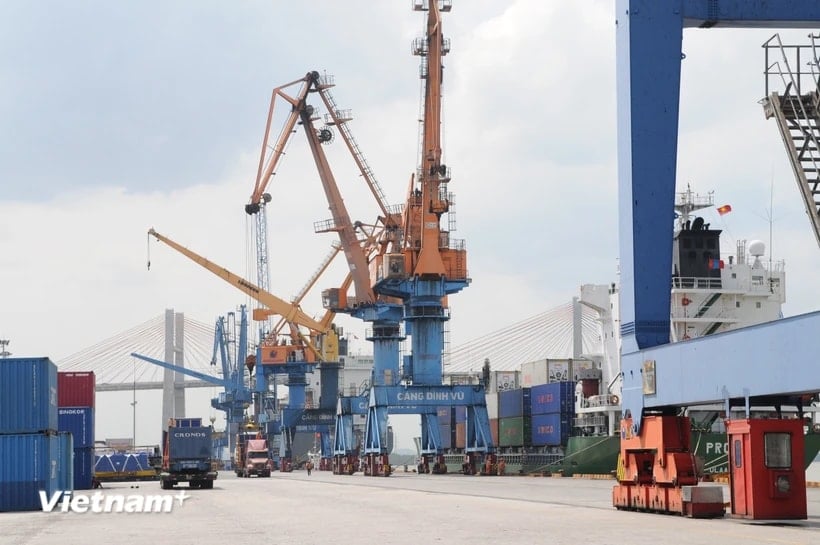
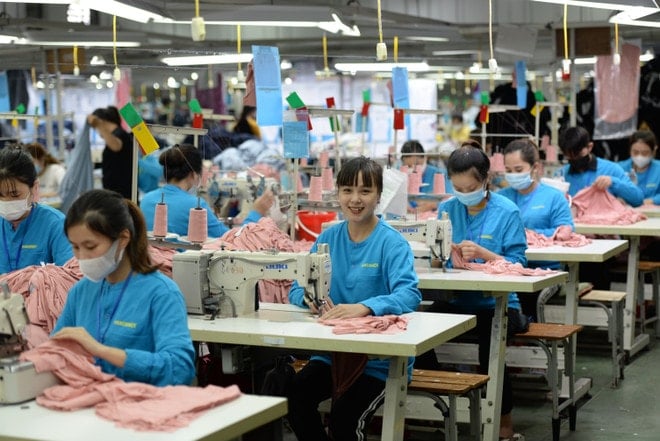


![[Photo] Prime Minister Pham Minh Chinh chairs conference on anti-smuggling, trade fraud, and counterfeit goods](https://vphoto.vietnam.vn/thumb/1200x675/vietnam/resource/IMAGE/2025/5/14/6cd67667e99e4248b7d4f587fd21e37c)



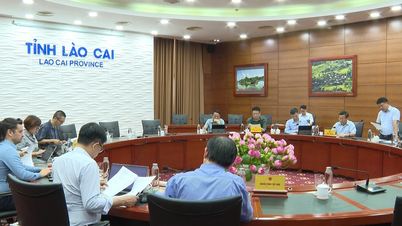

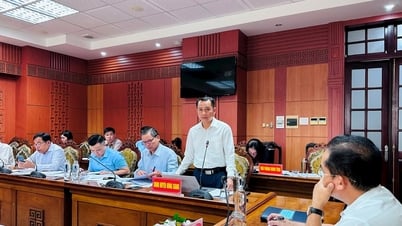

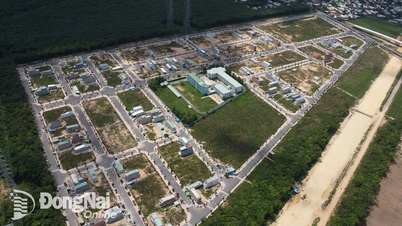
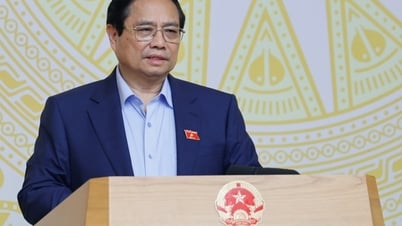
































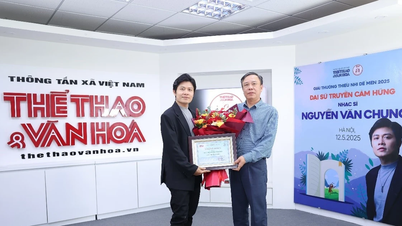















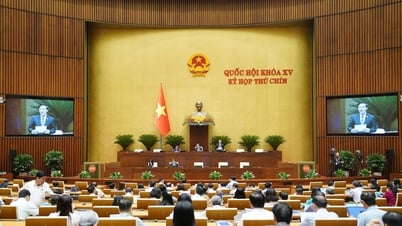

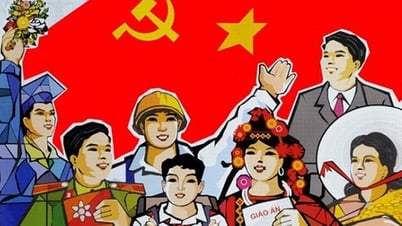











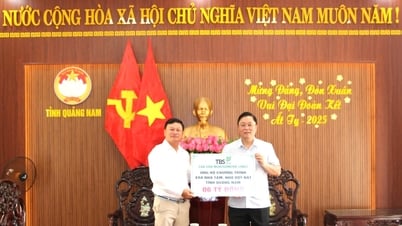











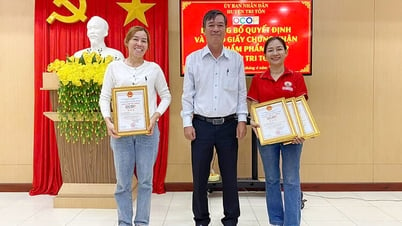
Comment (0)